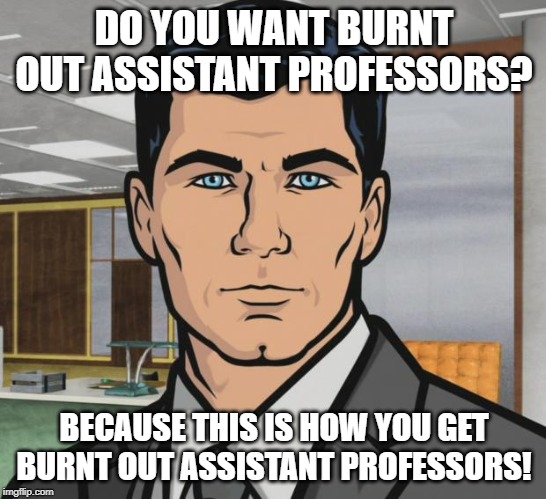Last updated on February 9, 2020
Since 2015, I have served as co-editor of leading field journals in agricultural economics almost continuously, first at Food Policy (2015-2019), and now at the American Journal of Agricultural Economics (officially since January 1, but I started handling manuscripts at the end of July), where I am slated to serve until the end of 2023.
Both those experiences have been hugely rewarding.
Both those experiences, however, also come with their fair share of frustrations.
Perhaps the worst aspect of editing a journal is dealing with would-be reviewers who are at once always-takers and never-givers (ATNGs)–that is, those academics who just love to submit to a journal but never have time to review for it.
The behavior of ATNGs is all the more annoying when I see bright young academics ask #EconTwitter how many reviews is too many for an assistant professor, because they have done one per week since the start of the calendar year and they feel like they aren’t really in a position to say “No” to journal editors–who may eventually get asked to write external review letters for those same young academics.

The behavior of ATNGs imposes a huge externality on those who (feel like they) cannot say no. Speaking with colleagues who also serve as editors at the AJAE and elsewhere, this behavior is much more common than most people suspect. And lest you think that there is some kind of editor fixed effect at play, the same ATNGs keep coming up when comparing notes with other editors in my area of research.
Recently, I discussed this with one of my mentors, who has extensive experience editing journals. His solution has been to directly tell ATNGs that for the peer-review system to work, people have to review in addition to submit, and that he will not be sending out any of their papers for review until they start reviewing for him. After all, for the system to work, for every paper of yours that gets sent out for review at a journal, you should be prepared to do two or three reviews for that journal.
As such, and because I believe in an equitable division of labor when it comes to peer review, I am seriously thinking of adopting the same policy for those manuscript I handle at the AJAE.
One concern that arose when discussing that policy with others was “Doesn’t it unfairly penalize the coauthors of ATNGs?” There is no doubt it does, but the hope here is that those same coauthors will put pressure on their ATNG coauthors so that those ATNGs become better citizens of the profession.*
All of my time away from home is spent in an academic department or in volunteer organizations, so I am painfully aware of the fact that in the absence of incentives, it’s always the same people who show up to do the work. But as an economist, I also know that when they are available, incentives work: Going back to my mentor, he told me that after he’d initially adopted the aforementioned policy toward the two ATNGs he had to deploy it with, one of them stopped submitting to the journal he edited altogether, and the other started reviewing ipso facto. From a social-welfare perspective, either outcome is better than having to deal with ATNGs.
* Alternatively, “Won’t we be missing out on good manuscripts if we do that?” Again, no doubt, but there is a considerable supply of excellent manuscripts–there are way many more of them than we can ever hope to publish–and I am happy accepting those manuscripts that are sitting right at the margin.